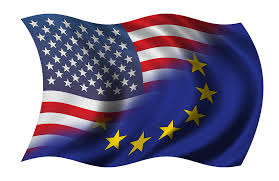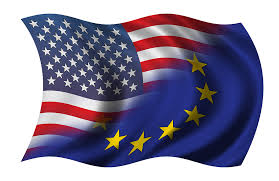
The European Union has replied it would retaliate against any form of sanctions in response to President Donald Trump's tough stance on international trade.
After Trump declared intentions to limit steel imports to protect domestic steel companies, there was rise of the contentious comments.
EU Commission President Jean-Claude Juncker responded by saying, "Our mood is increasingly combative". By imposing limits on bourbon, a major export from Senate Majority Leader Mitch McConnell’s state of Kentucky, the EU will react with countermeasures, he goes on to say.
Analysts say a potential trade war with Europe would be detrimental to the economy although sanctions have yet to be officially implemented.
"It's been a while since we've had a good multilateral trade agreement or even a major regional trade agreement," Carla Hills, a former trade representative under President George H.W. Bush, said during a television interview. "We have indicated that we're not interested in them, and that really hurts our nation's economy."
The free trade deal between Japan and Europe, which would hurt American industries, was specifically referenced by Hills.
"We have pulled out of the Trans-Pacific Partnership, and now we see Japan making a deal with Europe, which will have an adverse effect upon a number of our industries as Japan lowers its tariffs to our competitors," Hills said. "We are in effect taxed when we have the opportunity to sell."
Eurasia Group Senior Advisor David Gordon says America's behavior on trade isn't isolating, but its rhetoric suggests otherwise, despite Juncker's strong comment on potential retaliation.
"I think the U.S. is isolated rhetorically, and EU Commission President Juncker laid down a tough line," Gordon said. "I think while other countries aren't behaving that much differently than we are, they are not self-isolating themselves through rhetoric."
Hills maintains that an abrasive response would be harmful to the economy even though some American companies may want stricter regulations on "dumping." This dumping happens when, compared to the price charged in the domestic market, the export by a country charges a lower price in the foreign market in order to gain market share.
"I think it's very difficult to say that without evaluating what has gone on ... we're going to take action against particular countries on particular products," Hills said.
"I would like to see us work within the rules that, by the way, we've led with for 70 years, whether under Democrat or Republican administrations. ... We have been the leaders in developing rule of law governing trade. For us to walk back from that, the largest economy in the world, that is going to hurt us badly."
(Source:www.cnbc.com)
After Trump declared intentions to limit steel imports to protect domestic steel companies, there was rise of the contentious comments.
EU Commission President Jean-Claude Juncker responded by saying, "Our mood is increasingly combative". By imposing limits on bourbon, a major export from Senate Majority Leader Mitch McConnell’s state of Kentucky, the EU will react with countermeasures, he goes on to say.
Analysts say a potential trade war with Europe would be detrimental to the economy although sanctions have yet to be officially implemented.
"It's been a while since we've had a good multilateral trade agreement or even a major regional trade agreement," Carla Hills, a former trade representative under President George H.W. Bush, said during a television interview. "We have indicated that we're not interested in them, and that really hurts our nation's economy."
The free trade deal between Japan and Europe, which would hurt American industries, was specifically referenced by Hills.
"We have pulled out of the Trans-Pacific Partnership, and now we see Japan making a deal with Europe, which will have an adverse effect upon a number of our industries as Japan lowers its tariffs to our competitors," Hills said. "We are in effect taxed when we have the opportunity to sell."
Eurasia Group Senior Advisor David Gordon says America's behavior on trade isn't isolating, but its rhetoric suggests otherwise, despite Juncker's strong comment on potential retaliation.
"I think the U.S. is isolated rhetorically, and EU Commission President Juncker laid down a tough line," Gordon said. "I think while other countries aren't behaving that much differently than we are, they are not self-isolating themselves through rhetoric."
Hills maintains that an abrasive response would be harmful to the economy even though some American companies may want stricter regulations on "dumping." This dumping happens when, compared to the price charged in the domestic market, the export by a country charges a lower price in the foreign market in order to gain market share.
"I think it's very difficult to say that without evaluating what has gone on ... we're going to take action against particular countries on particular products," Hills said.
"I would like to see us work within the rules that, by the way, we've led with for 70 years, whether under Democrat or Republican administrations. ... We have been the leaders in developing rule of law governing trade. For us to walk back from that, the largest economy in the world, that is going to hurt us badly."
(Source:www.cnbc.com)














